Summary
- Here I describe and show examples of hightops tall form-fitting athletic shoes.
- I also show some examples of form-fitting boots.
- Then I briefly discuss some s/m possibilities using these.
Skip the details here and continue with ...
Details
Hightops and Boots
Hightops in general are hot because the extra height tends go well with tight outfits -- whether jeans, spandex, latex ... whatever.
Among hightops in general, I especially like the look of boxing and wrestling shoes.
Their narrow, form-fitting cut is very similar to the look of a superhero boot -- narrow, tight and form-fitting all the way up.
Standard issue hightops can work well with tight gear, but narrower ones like boxing/wrestling boots are definitely more dramatic.
Same with boots. Although regular-cut boots can work, the narrower, trimmer and tighter -- the hotter the look.
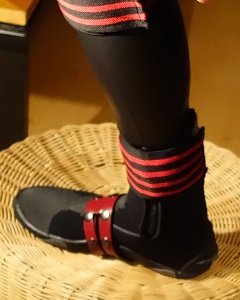
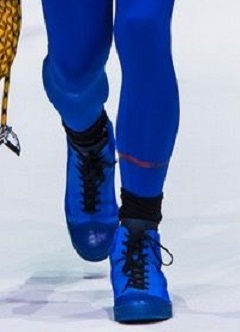
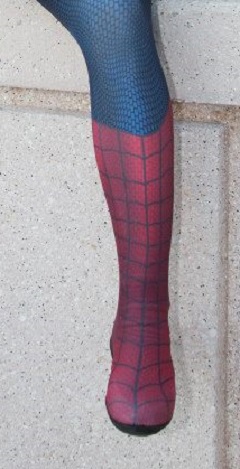
Laces, Laces, Laces
Many of these tight, contoured shoes and boots come with lots and lots of laces.
These laces are often functional, not decorative, meaning they have to be laced.
Wearing such lace-intensive shoes requires more time and effort to put on:
- 1) First get the shoes loose enough to get your feet into them
- 2) Then tightened up all those laces, row after row, making sure all get pulled tight
- 3) Attend to the patterns of the lacing, both how they lay (flat, twisted), and that they follow the same in-and-out pattern the whole way, etc.
- 4) Then do something with the lace ends (leave out, tuck in, wrap around)
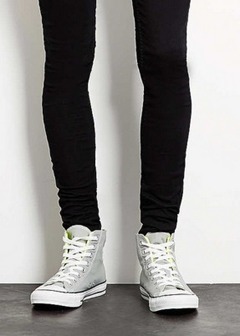
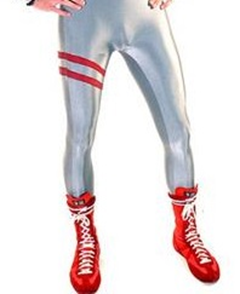
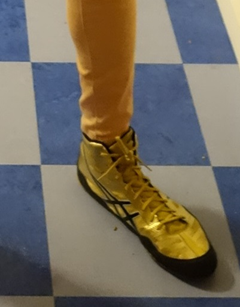
You'll go through this 1-2 minute long routine every time you put them on or take them off.
It's a time-consuming hassle that might make you wish for loose loafers instead.
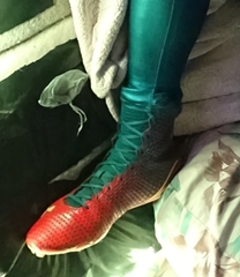
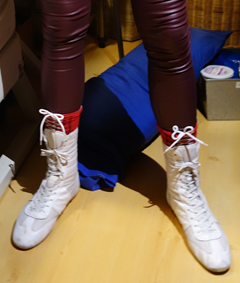
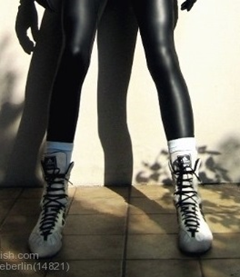
Tight Boots
Men's boots don't tend to be cut very tight to the and calf. Women's are much tighter.
So if you want a narrower, tighter cut, you'll want to explore what you can find in women's boots that are styled like men's.
Remember that a women's boot is numbered two sizes lower than a man's. So a woman's size 10 is a man's size 8.foot
This narrow, tighter cut sure beats the baggy cut of most men's boots, especially when paired with really tight jeans.
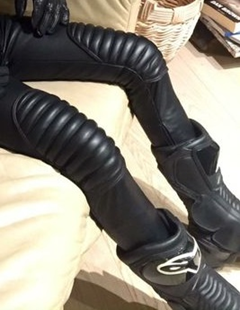
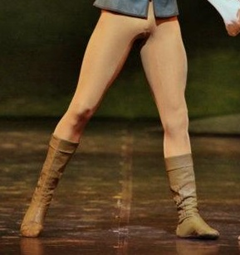
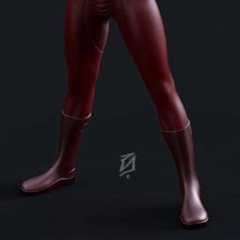
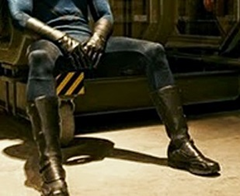
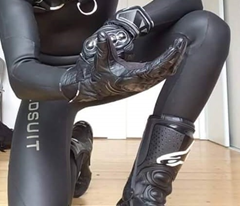
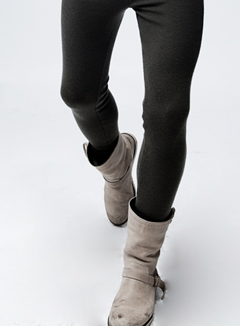
S/M with Hightops and Boots
With any of these shoes, a narrower heel and sole tend to make for a trimmer, narrower profile to stand on.
But, as such, they also provide less stability -- so, if you're so inclined, making for another way to suffer for style.
The addition of narrow padded strips centered length-wise on the bottoms of the soles and heels can further enhance their lean, narrow profile (making them look a bit more wrap-around), while at the same time making them a bit less easy to maintain balance in.
With boots, if the soles and heels are worn unevenly, standing in them could put your foot at a tilt.
'Hazards' created from wear can be gotten from normal shoe wear (gradually) or sooner if you're impatient like me with various methods that simulate normal wear, but do it much faster.
The right kind of wear will create shoes that can be used in S/M play to punish, torment or otherwise challenge the wearer.
If you're up for doing some cut and paste with your shoes, tight boxing boots or wrestling shoes can often be made even narrower by carving in the soles and heels as much as possible.
Leave the centers full, but narrow, so the support is more akin to ice skates than burly boots.
Remove edges of the inner soles, and pull the sides of the boots up tighter, so that there’s also less on the inside bottom to stand on.
Make sure these are always wrapped tightly around feet and ankles – emphasizing the tightness of the look.
All this requires cutting, shoe glue, etc., so not for the timid.
If your boots are slightly small, as will often be the case with women's boots (they often aren't quite long enough for those of us with longer feet), put in a narrow heel riser in on the inside.
By elevating the heel of the foot, the toes can come back more.
Of course, raising the heel makes for a less stable footing.
It would be fun to toy with the reduced stability by having my boys play soccer wearing such boots – or perhaps wrestle in them or do some martial arts.
And, if your boots, hightops or whatever are not quite tight enough, you can sometimes
1) sew them tighter depending on the material and your sewing machine
2) pin them up tighter from the inside
3) add laces or straps and squeeze them tighter